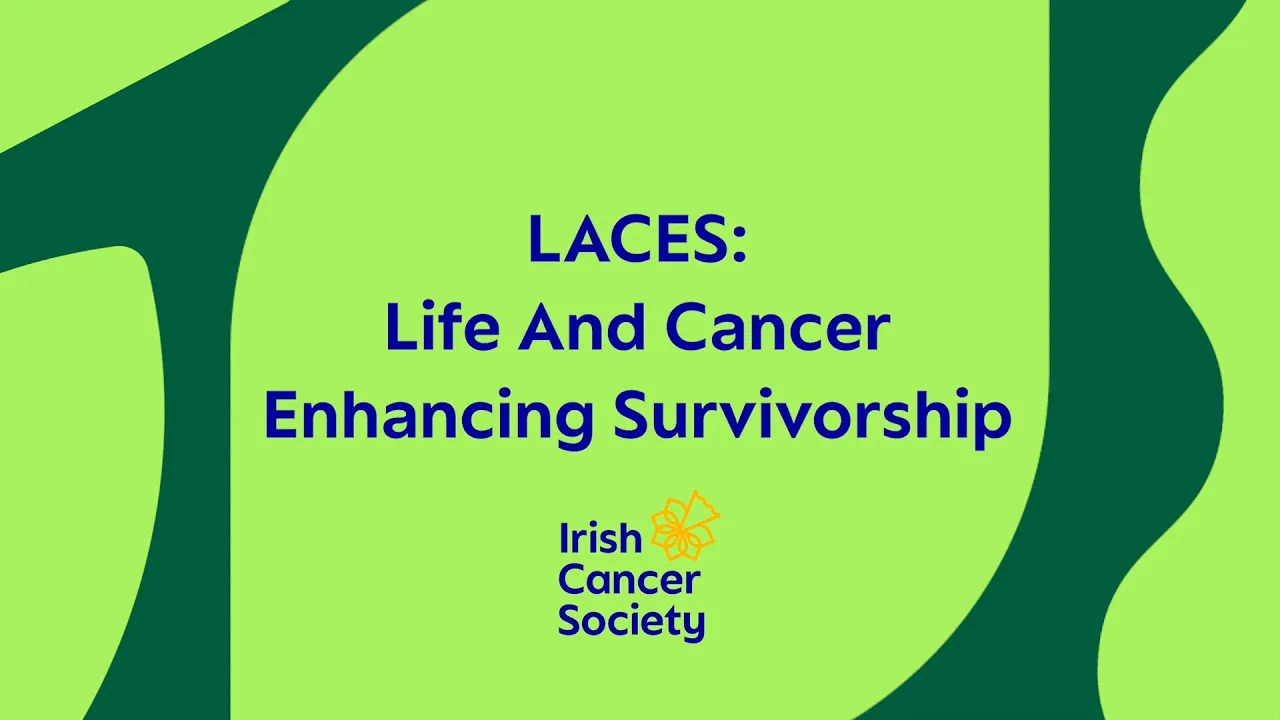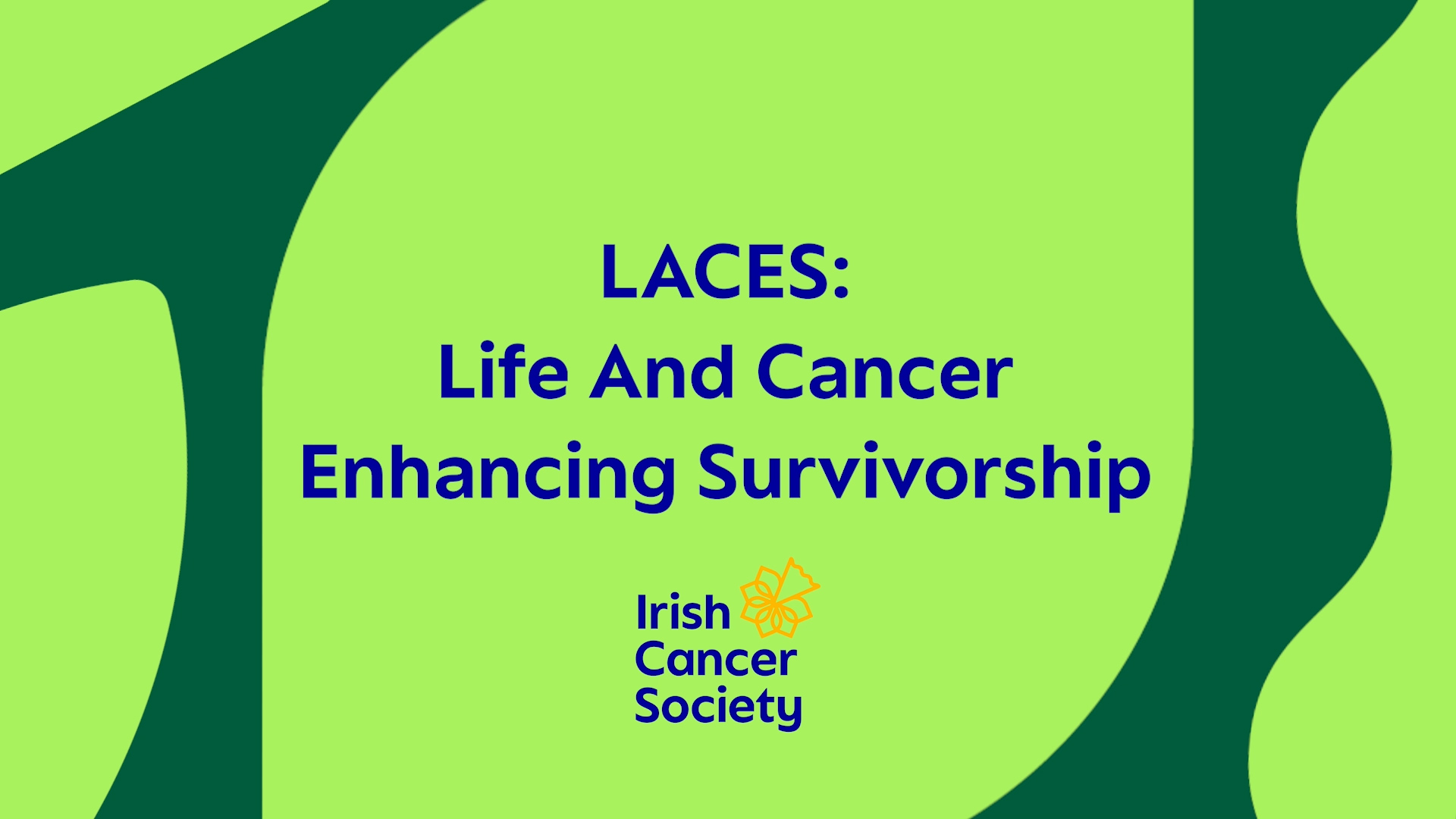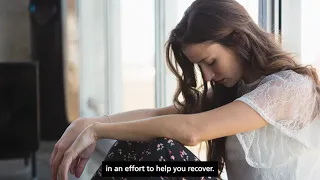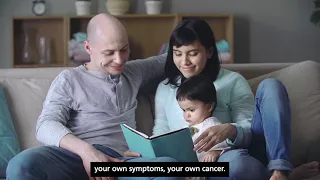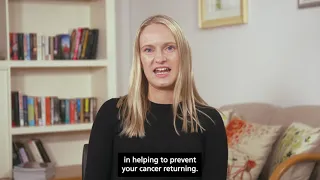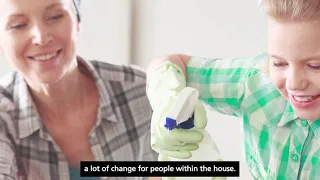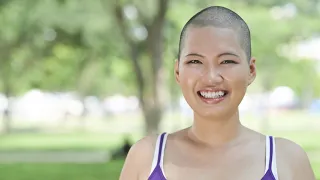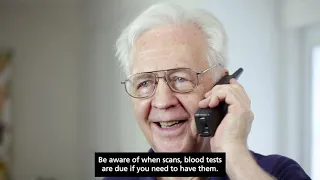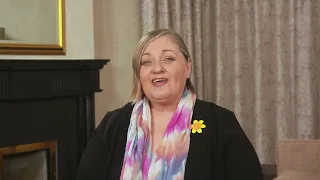LACES 8: Support
LACES: Life And Cancer - Enhancing Survivorship. A workshop from the Irish Cancer Society. Part 8: Support
0:01
LACES, Life And Cancer - Enhancing Survivorship Workshop.
0:13
Module 8: Supports near you – In this module we will explore the services local cancer support centres can offer and where to find other services in your area.
0:29
Question: I'm concerned about without ending my treatment. I feel slightly alone and disconnected.
0:35
It can be really hard to come to the end of your treatment. When people are going through their cancer experience, they have their appointments at the hospital, they have their calendar, they know what's happening next, they get friendly with their nurses and with the other people who are on the same treatment regimen as they are, and then when we get to the end of treatment and it's over, people often tell me that they feel like they've been pushed off a cliff.
0:59
So, people really struggle with that end of things, and I like to think of Cancer Support Centres, really as rehabilitation centres. It can be really hard for people to talk about their cancer experience with their family and friends; particularly right after treatment, when everybody around you is celebrating and saying “Oh, thank goodness, now we can get back to normal.”
1:21
But the person who's had cancer, for them normal is never going to be what it was before, and they need to find a new normal, and they don't want to burden their family and friends about feeling anxious or depressed, when they're supposed to be so joyful and happy.
1:38
So, a Cancer Support Centre is a really safe place for people to come and explore those feelings, and find their new meaning, and find their new normal.
1:49
Question: What can I expect at a Cancer Support Centre?
1:55
Cancer Support Centres are warm, welcoming, non-judgmental and confidential organisations. They work really hard to shed, the sort of, medical model, so that you don't feel like you're in a hospital when you get there.
2:10
There are a wide range of services on offer at a local Cancer Support Centre. So, these will include things like emotional support, like counselling and peer support programmes. There will be physical activity programmes, getting back to fitness, and help with dietary concerns.
2:28
There will be guest speakers who will talk about all kinds of things from the latest treatments, and how to prevent recurrence, nutrition, diet and exercise, and there is also the emotional support like counselling and support groups.
2:46
Question: Who runs Cancer Support Centres?
2:51
Cancer Support Centres are independent, voluntary-led organisations, so each of them would have its own separate board of directors and those people are responsible for the governance of the organisation.
3:05
Many of the people in a Cancer Support Centre, whether their staff or volunteers, have had a cancer experience of their own.
3:13
Question: Do I need to make an appointment to come in?
3:19
All Cancer Support Centres offer a drop-in service, so if you just wanted to drop in to the service then you would likely be greeted by a trained volunteer, and that volunteer would bring you in, offer you a cup of tea or coffee, and then have a chat with you about all of the services that are on offer at the centre.
3:38
If you're the kind of person who would prefer to have an introduction made for you, you can reach out to your Daffodil Centre nurse or call the Irish Cancer Society Support Line at 1800 200 700 and a nurse will make a referral for you.
3:53
That appointment will generally be with the services coordinator. So, that person will sit with you and talk about your own situation, and then how the services of the centre might gel with your own style.
4:07
So, lots of people like groups and they want to be involved in those kinds of activities, and other people would rather have a one-to-one experience in a Cancer Support Centre.
4:18
So, there are lots of things that you can do in a group; things like meditation and mindfulness, and yoga, and tai chi, and expressive therapies like art and writing, and even, there's loads of singing. There's probably a choir in every Cancer Support Centre in the country.
4:35
But then there are also things that are really individual; things like counselling and psychological services, as well as complementary therapies that are one-to-one. Centres are client-led, so you decide what suits you best.
4:54
Question: Can you tell me more about the counselling available?
5:00
Counselling in a Cancer Support Centre is delivered by fully-qualified professional counsellors who are members in good standing of their professional body and who are fully-insured and in supervision.
5:12
All counselling services are free of charge. What we aim to do with the counselling services Cancer Support Centres is to help people to get a sense of where they're at, and to understand that what they're going through is really normal. Most people are having a very normal emotional response to a very abnormal life experience.
5:35
One of the biggest challenges for people who have had cancer is that they lose the role in the family, if they were maybe, the bread winner or the caretaker. They end up not being the person bringing in the money or doing all the caretaking, and they can really struggle with that.
5:51
And also, then when they're ready to take those roles back on, the people around them might not be ready for them to do that, and so it's really important that you get a chance to learn how to navigate all of those issues.
6:05
Although counselling is generally one-to-one, sometimes counsellors will bring in a spouse or even a family group to have a session or two, to just help everybody to get on the same page.
6:16
Cancer Support Centres are open to people who have been diagnosed but also to people who care about them, so not only just your closest family but also your best friend, maybe, or your life partner, whoever it is, that is the person that you feel is your biggest supporter is very welcome in all Cancer Support Centres.
6:36
The centres that provide supports for children under 18 often provide play therapy, and a group called ‘CLIMB’, and CLIMB is a wonderful 6 week programme, and it stands for ‘Children’s Lives Include Moments of Bravery’ and it's aimed at children aged 6 to 11 who are experiencing cancer in a loved adult, so whether that's a parent or a grandparent, or a beloved aunt or uncle. Those children are all welcome into that programme.
7:06
Question: What other programs might be suitable for me?
7:11
If you're struggling with the appearance related side-effects of your treatment, many Cancer Support Centres run a programme called ‘Look Good. Feel Better’ which is a skincare and makeup programme delivered by makeup artists with experience in cancer care, and so they'll help people to look and feel like themselves again.
7:34
There are other programmes that centres run from time to time as well about dressing your new body, and loving yourself and feeling good in your in your own skin.
7:44
A lot of the feedback that we've had from men over the years is that they weren't completely comfortable going in to talk about their emotions on a face-to-face basis.
7:54
We've developed a series of workshops specific to men's cancers, and also Cancer Support Centres have developed things like gardening projects, and golf clubs, and fly-fishing, so that men can express themselves in a way that feels most comfortable to them.
8:12
Many Cancer Support Centres offer wig and prosthesis fitting in their centres, so you can go in and meet with a professional privately in a safe space, and get a new wig fitted or get measured for a prosthesis.
8:28
Also, many of the centres offer manual lymph drainage for people who are struggling with lymphoedema, and also sleeve fitting services as well.
8:37
Question: Do Cancer Support Centres provide any other help?
8:44
Some centres offer transportation programmes. They are primarily for people going through radiotherapy treatment, and you would need to contact your individual centre to see what's on offer there.
8:56
Many centres offer financial advice as well. Sometimes they have a community-based community welfare officer who comes in and does clinics with people, and sometimes they have people from the MABS service as well. Those services are all completely confidential and one-to-one.
9:16
Question: How can I find my nearest Cancer Support Centre?
9:22
To find your nearest Cancer Support Centre, you can log on to the Irish Cancer Society's website and look for ‘Support Near Me’. You can drop in to your local Daffodil Centre, and speak with a nurse there and she'll help you to find your local centre, or you can ring the Cancer Support Line on 1800 200 700 and the nurse will help you there.
9:43
While Cancer Support Centres work with people who have all kinds of outcomes with cancer, they really, truly are places that are full of fun, and energy, and hope.
9:57
For more information, please visit www.cancer.ie/LACES
LACES: Life And Cancer – Enhancing Survivorship playlist
